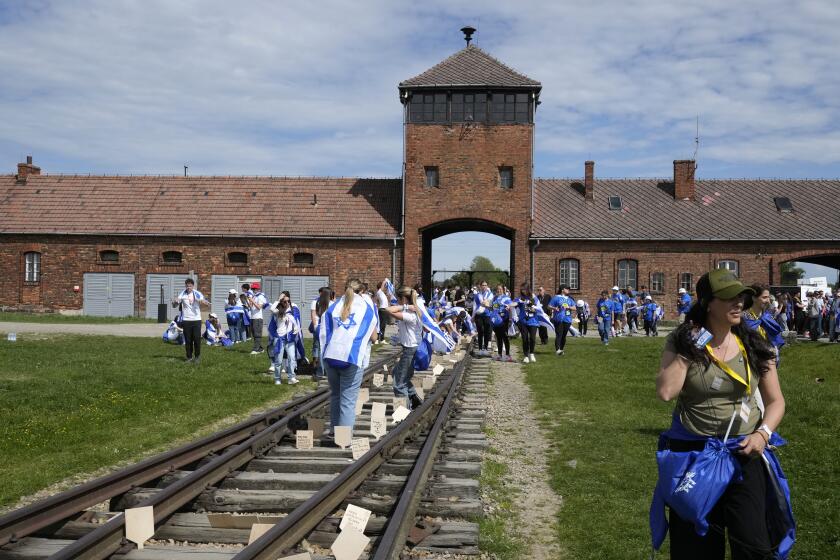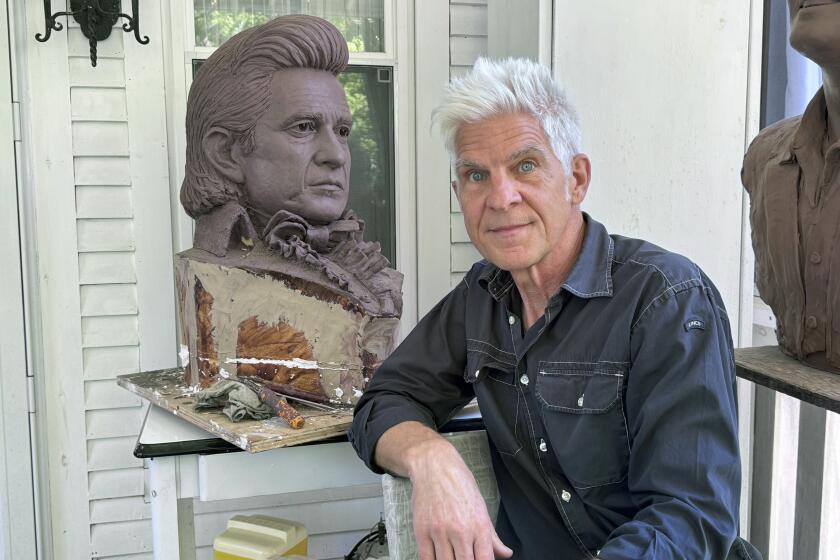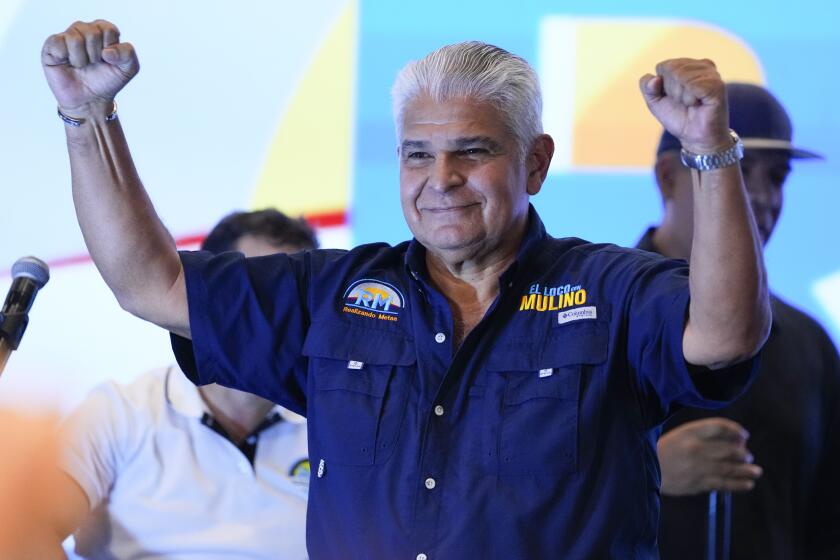Saudis Need to Do More, U.S. Declares
Amid escalating attacks on Americans in Saudi Arabia, Secretary of State Colin L. Powell said Sunday that he was satisfied with the Saudi regime’s efforts to combat terrorism so far, but indicated it should do more to increase its security forces and share intelligence with the U.S.
“It’s certainly a dangerous situation right now,” Powell said on NBC’s “Meet the Press.” “Terrorists are going after the Saudi leadership. They’re trying to make the country unstable.”
Powell’s remarks followed claims by Islamic militants that they had gunned down one American and abducted another Saturday in Saudi Arabia. Lockheed Martin Corp. confirmed Sunday that Paul M. Johnson Jr., a field engineer working on a sophisticated targeting system for attack helicopters in Saudi Arabia, had been kidnapped.
The slaying of Kenneth Scroggs, who worked for Saudi Arabia-based Advanced Electronics Co., was confirmed Saturday.
A group identifying itself as Al Qaeda in the Arabian Peninsula took responsibility for the attacks in a statement posted on an Al Qaeda-affiliated Internet site. It said it was seeking to “avenge U.S. mistreatment” of Muslim detainees and would treat Johnson just as “the Americans dealt with our brothers in Guantanamo and Abu Ghraib,” a reference to U.S.-run prisons in Cuba and Iraq.
The U.S. Embassy in Riyadh, the Saudi capital, said in a statement that the attacks involved “extensive planning and preparation,” and it warned U.S. nationals to take extra precautions and watch for signs of surveillance.
Johnson’s whereabouts and condition remained unknown Sunday.
The incidents are the latest episodes of growing anti-Western violence in Saudi Arabia, events that are feeding concerns that terrorists are seeking to undermine the royal family. The kingdom relies on about 6 million foreign workers, including many who support the oil industry.
Powell, appearing on three Sunday talk shows, said the Saudis knew they had to step up law enforcement efforts as well as cut off funding to groups that supported terrorists. “I am satisfied with what they have done so far,” Powell said on “Fox News Sunday.” “I think that there is more they can do. They can build up their forces. There’s probably more we can do with respect to intelligence exchange, and we are working at all of these areas.”
Sen. John D. “Jay” Rockefeller IV of West Virginia, the ranking Democrat on the Senate Intelligence Committee, said he believed that Saudi Arabia was Al Qaeda’s next target.
“I don’t think psychologically, over their 70-year history, they’ve been equipped to handle this kind of attack,” Rockefeller said on CNN’s “Late Edition with Wolf Blitzer.”
Several U.S. counter-terrorism officials said Sunday that their Saudi counterparts had been far more cooperative in working together to root out Al Qaeda cells in the kingdom since May 12, 2003, when suicide bombers detonated car bombs at three housing complexes, killing at least 34 people.
In recent months, the U.S. officials said, Saudi authorities had been even more aggressive, declaring an all-out war on Islamic militants who appeared to be targeting the Saudi royal family.
In a memo posted to Lockheed employees on the defense and aerospace company’s website, the firms’ top executives said, “We are all deeply concerned and are working closely with officials of the U.S. and Saudi governments -- as well as Paul’s family -- to monitor the situation and assist in whatever way possible.”
Johnson, 49, was working on a targeting system that enables Apache helicopter pilots “to fly at very low altitudes in total darkness and in poor weather” and destroy ground targets, according to Lockheed’s website.
The Apache is a twin-engine attack helicopter developed for the U.S. Army and exported to Saudi Arabia and other U.S. allies.
“We don’t know any more than anybody else,” Jodie Johnson, the captive’s daughter-in-law, said from her home in Cocoa Beach, Fla.
She said Johnson had worked in Saudi Arabia for Lockheed Martin for 10 years.
The avowed kidnappers had not made contact with U.S. or Saudi authorities, State Department spokesman Stuart Patt said.
Two months ago, in response to increased threats of terrorism, the State Department urged dependents of American nationals in Saudi Arabia to leave and issued a warning to travelers.
Times staff writer Josh Meyer contributed to this report.
More to Read
Start your day right
Sign up for Essential California for news, features and recommendations from the L.A. Times and beyond in your inbox six days a week.
You may occasionally receive promotional content from the Los Angeles Times.






